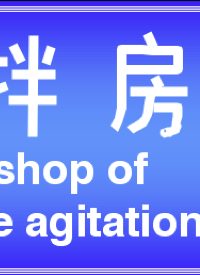
The economic experts were recently proven wrong once again, as the estimate of the U.S. trade deficit dropped to $38.7 billion. According to a report from the Commerce Department, most of the trade deficit continues to be found in the import of goods from China; the data for October shows a $25.5 billion trade deficit with that nation. However, the communist regime has found one area in which they believe U.S. imports are in danger of disrupting their economy: the rise in the use of English.
According to a report from the Voice of America, China’s General Administration of Press and Publication (GAPP) has significantly expanded preexisting restrictions on the use of English:
Chinese authorities have banned the use of foreign words and phrases — especially English — in Chinese newspapers, books and websites.
The ban, reported Wednesday, was issued by the General Administration of Press and Publication, the governing body for written publications. It says the increasing use of English and half-English phrases is damaging the purity of the Chinese language and disrupting the nation’s “harmonious and healthy cultural environment.”
The ban on English is not a suggestion; rather, those who violate the decree “will be punished as provided for by the law.”
According to the Congressional-Executive Commission on China, the GAPP is the Chinese dictatorship’s official censorship agency:
The GAPP has the legal authority to screen, censor, and ban any print, electronic, or Internet publication in China. Because all publishers (including Internet publishers) in China are required to be licensed by the GAPP, that agency also has the power to deny people the right to publish, and completely shut down any publisher who fails to follow its dictates.
The ban on English is hardly the first time China’s Communist Party has used “culture” as an excuse for oppression; Mao’s “Cultural Revolution” may be forgotten by many Western intellectuals, but the horrific character of Communist tyranny was on display in all its brutality during those years in the name of defending “the party” and “socialism.” The regime destroyed much of China’s cultural heritage during those bloody years, vitiating any claim by Mao’s successors to defend the culture by trying to deprive the nation of the use of English, the global language of trade and political discourse.
How effective the GAPP’s extended ban of English will be in curbing the use of the language remains to be seen. The ban on English is further proof that the tyrants reigning in China continue to try to control the lives and thoughts of their victims. An Orwellian ban on the use of an entire language is a sign of desperation which is nearly as pathetically tyrannical as the ban on permitting dissident Liu Xiaobo to send a personal representative to receive his Nobel Peace Prize. Such efforts will probably prove futile, and even counterproductive, to the aims of the tyrants.
All of China’s vaunted economic might seems fairly pathetic if the regime recoils in horror over the idea that a Chinese website might use a few innocuous English words.
The Communists have signaled their fundamental weakness. The GAPP has now demonstrated that dissent in China may be expressed with a single English word.



